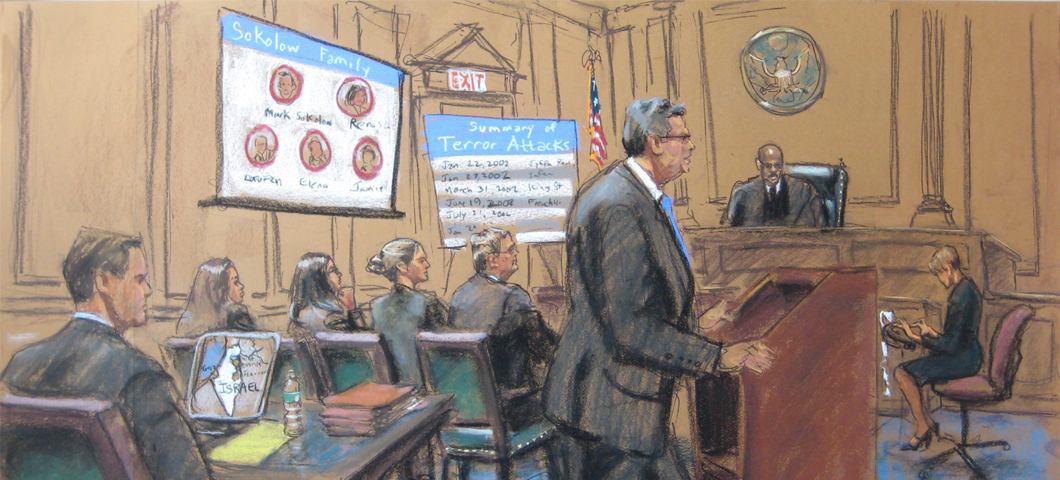Why Trial Presentations Are Critical for Effective Cross-Examination in Court
Enhancing Your Legal Approach With Expert Trial Presentations
In today's lawful landscape, the relevance of professional trial presentations can not be overstated. By transforming thick lawful concepts into appealing stories, professionals can improve juror comprehension and retention.
Importance of Test Presentations
Trial presentations serve as an essential aspect in the legal procedure, efficiently bridging the gap between complex legal debates and juror comprehension. The capability to boil down complex lawful concepts into available narratives is vital for jurors, who must make enlightened choices based on the evidence presented. A well-crafted presentation not only clears up the instance yet also boosts the persuasiveness of the argument, ultimately affecting the jury's perception.
In a period where attention spans are limited, the value of involving visuals and clear interaction can not be overstated. Trial discussions serve to capture jurors' passion and preserve their focus, enabling a much deeper understanding of the facts and legal concerns at hand. They give a structured structure that organizes the instance, helping with rational circulation and comprehensibility.

Trick Elements of Effective Presentations
An effective presentation in a court room setting joints on a number of crucial components that jointly boost its effect. Leading amongst these is clearness of message. Attorneys have to boil down intricate legal debates into concise, conveniently digestible factors to make sure jurors understand the core concerns. Enhancing this clarity is using a compelling narrative structure. A well-organized discussion, with a clear beginning, middle, and end, overviews the target market via the situation, making it more relatable and remarkable.
Aesthetic aids play a critical function also, as they can significantly reinforce crucial messages. Efficient use exhibits, charts, and representations can clarify intricate details and highlight necessary truths. Additionally, the presenter's distribution design is crucial; certain, appealing communication cultivates credibility and preserves jurors' interest.
Lastly, comprehending the audience is paramount. Tailoring the discussion to the jurors' histories and worths can foster a link that enhances understanding to the argument. In recap, quality, narrative structure, visual aids, distribution design, and audience understanding are integral to crafting an effective courtroom discussion that reverberates with jurors and supports the overarching legal method.
Innovation in Trial Presentations
Modern courts progressively incorporate innovation to boost trial presentations, developing on the fundamental elements of effective communication established via clear messaging and interesting narratives. The incorporation of audio-visual help, such as high-definition projectors and interactive displays, allows lawful groups to existing proof in a more engaging way. This modern technology not only captures the jury's interest but also facilitates a much better understanding of intricate information.

Digital devices, including discussion software and electronic display monitoring systems, enhance the company and retrieval of evidence (trial presentations). Lawyers can quickly reference records, Discover More Here pictures, and video clips, ensuring that vital details is easily available throughout the test. Additionally, making use of computer animations and simulations can strongly show crucial concepts, making them less complicated for jurors to grasp
In addition, court room technology promotes cooperation amongst lawful experts, enabling real-time modifications to discussions based upon jury responses or unforeseen advancements. The capacity to adapt on the fly is crucial in keeping engagement and reinforcing arguments. As innovation remains to advance, its function in test presentations will undoubtedly increase, using ingenious ways to communicate efficiently and persuasively in the quest of justice.
Narration Strategies for Impact
Effective narration strategies are important in supplying impactful trial discussions, as they change complex legal arguments right into relatable stories. A well-crafted tale captivates the audience, making it less complicated Our site for jurors to recognize and keep in mind bottom lines.
To develop an engaging story, lawyers need to concentrate on establishing a clear structure with a beginning, middle, and end. The beginning ought to introduce the instance context and its importance, while the center elaborates on the core concerns, weaving in evidence and witness statements that support the disagreement. Conclusively, the finishing must reinforce the intended message, driving home the wanted result.
Furthermore, integrating psychological components can dramatically boost the story's influence. By humanizing the instance, attorneys can evoke empathy, blog allowing jurors to link personally with the truths offered. Utilizing vivid images and narratives can also assist in highlighting complex themes, making them much more concrete and remarkable.

Tips for Application in Court
Executing narration methods in court needs careful planning and implementation to guarantee that the narrative resonates with jurors. Begin by identifying the core message of your situation and straightening it with the emotional and valid aspects that will involve the jury. Develop a clear and compelling narrative arc that consists of an introduction, a development of dispute, and a resolution.
Use visual aids to improve storytelling; displays, timelines, and multimedia presentations can help show complicated concepts and keep juror interest. Exercise your delivery, ensuring that body language, tone, and pacing follow the psychological weight of your tale.

Conclusion
In verdict, expert trial discussions play an essential duty in improving legal strategies by properly interacting intricate disagreements to jurors. The combination of visual help, clear stories, and emotional storytelling promotes juror engagement and understanding. By leveraging technology and adhering to essential elements of successful discussions, attorneys can considerably improve the possibility of attaining positive verdicts. The application of these techniques is necessary for contemporary test advocacy, ultimately forming the outcome of legal process - trial presentations.